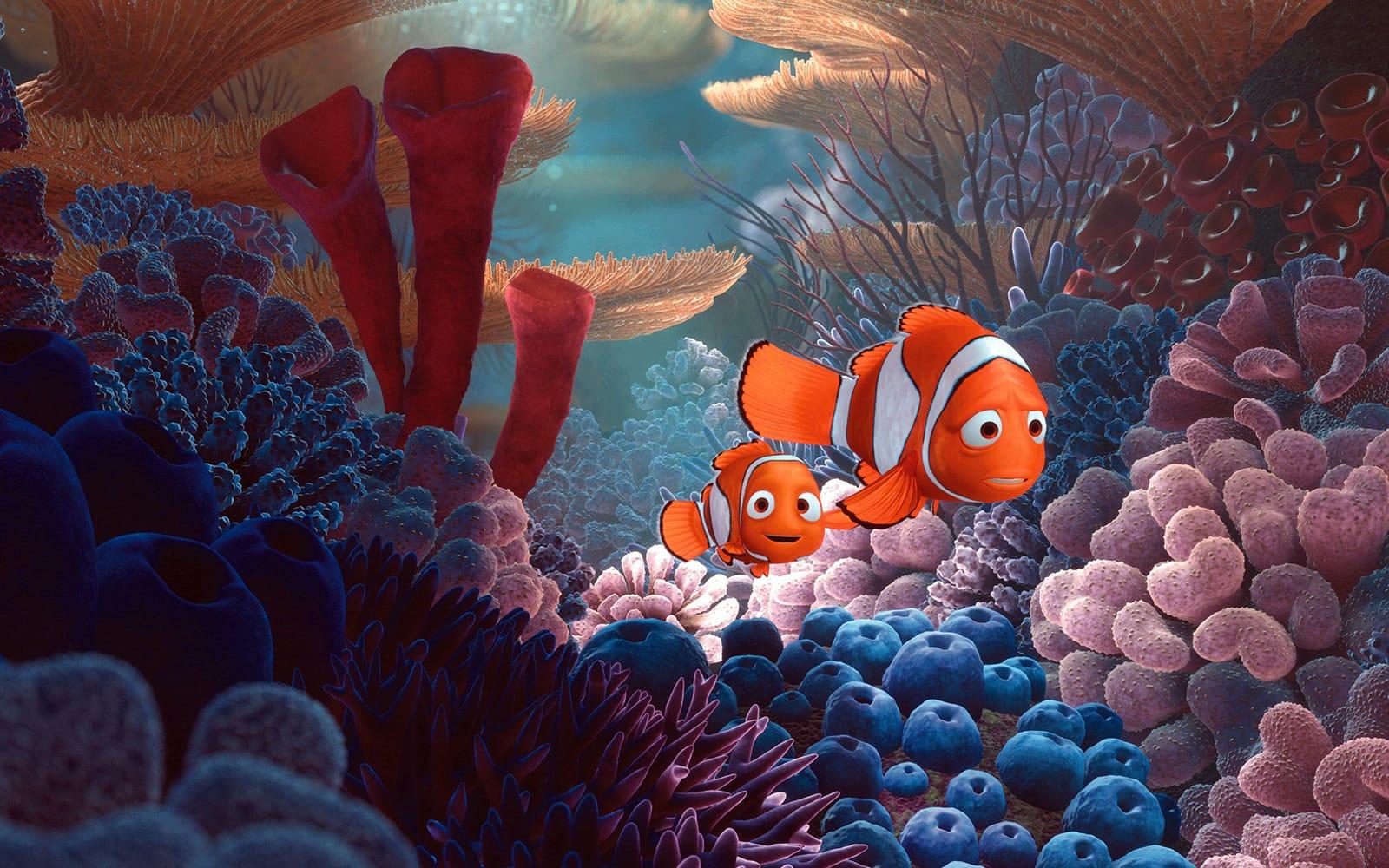Finding Nemo Didn’t Lie to Your Kids; Pixar Just Chose to Focus on Deeper Truths

Finding Nemo is easily one of Pixar’s most successful and acclaimed films. The story of a father clownfish trying to find his lost son in the ocean’s vast expanse is incredibly entertaining, aesthetically beautiful, and more than just a little moving. However, The Fisheries Blog’s Patrick Cooney thinks it could’ve been even better, if only Andrew Stanton,Lee Unkrich, et al. had been a little more scientifically accurate in their depiction of the film’s main characters.
In a cheeky post with the nice clickbait title of “Finding Nemo lied to your kids, and they will do it again in the sequel: Finding Dory!”, Cooney posits a more factually correct, and in his opinion, more entertaining storyline:
Father and mother clownfish are tending to their clutch of eggs at their sea anemone when the mother is eaten by a barracuda. Nemo hatches as an undifferentiated hermaphrodite (as all clownfish are born) while his father transforms into a female now that his female mate is dead. Since Nemo is the only other clownfish around, he becomes a male and mates with his father (who is now a female). Should his father die, Nemo would change into a female and mate with another male. Although a much different storyline, it still sounds like a crazy adventure!
[…]
In the end, the storyline for Finding Nemo was obviously entertaining for children, but as a fisheries scientist, I must admit, I find the biologically accurate storyline a bit more entertaining. With the announcement of a sequel called ‘Finding Dory’ coming in 2015, Disney still has a chance to redeem themselves, but I am not keeping my small ‘lucky’ fin crossed. Which storyline do you think Disney should show in the sequel?
It’s true: the fact that clownfish are born hermaphroditic, and can change genders as necessary, is interesting. But to say that Pixar lied to kids by not animating a more biologically accurate picture of Nemo and Marlin’s relationship is simply ludicrous. If Pixar had stated that Finding Nemo was going to be a documentary about clownfish reproductive habits, then Cooney’s alarmist title would’ve been justified. But Pixar clearly never took that route, as should be obvious by the presence of sea creatures who talk, read human handwriting, participate in support groups, ignore basic biological instincts like eating their natural prey, etc. So why fault Pixar for failing to meet a standard that, to the best of my knowledge, they never claimed to be shooting for in the first place?
But as eyeroll-inducing as Cooney’s premise may be, the article’s comments are frustrating in their own way. Some of the film’s defenders use variations of the age-old “Don’t take it so seriously, it’s just a kids movie” argument. Which just betrays the fact that people still can’t seem to wrap their heads around the concept that animation does not have to be for kids only. This has been one Pixar’s great contributions to American filmmaking, that they’ve taken a medium so often associated with cheesy, forgettable entertainment, and have used it to tell creative, emotional, and deeply affecting stories, of which Finding Nemo is arguably the best example. (Actually, I think people have come to terms with this on a subconscious level — which would explain Pixar’s tremendous box office success — but they’re still conditioned by decades of American entertainment to see “children’s entertainment” whenever they see animation.)
As for Cooney’s claims that a more biologically accurate storyline would’ve been more entertaining, well, he’s certainly welcome to his opinion. But I would argue that by obviously forgoing some biological accuracy regarding clownfish (not to mention regal tangs, silver moonfish, sea turtles, Moorish idols, pelicans, and starfish), Pixar freed themselves to tell a story that may not have been the most factually correct, but was nevertheless a deeper and, in one sense, truer story.
Finding Nemo doesn’t feature biologically correct hermaphroditic fish, but it does focus heavily on such powerful and universal themes as family, loyalty, courage, sacrifice, and the grave responsibilities and challenges of parenting. (Steven Greydanus touches on this final theme in his excellent review.) That was the filmmakers’ goal, not scientific accuracy, and they succeeded admirably. As fascinating as clownfish biology might be — and it is, indeed, fascinating — those themes, as we see them played out in a father’s sacrificial and heroic love, and a son’s growing maturity and understanding, contain truth that transcends, or to use a more oceanically correct metaphor, dives to deeper depths than biological fact.
This entry was originally published on Christ and Pop Culture on .